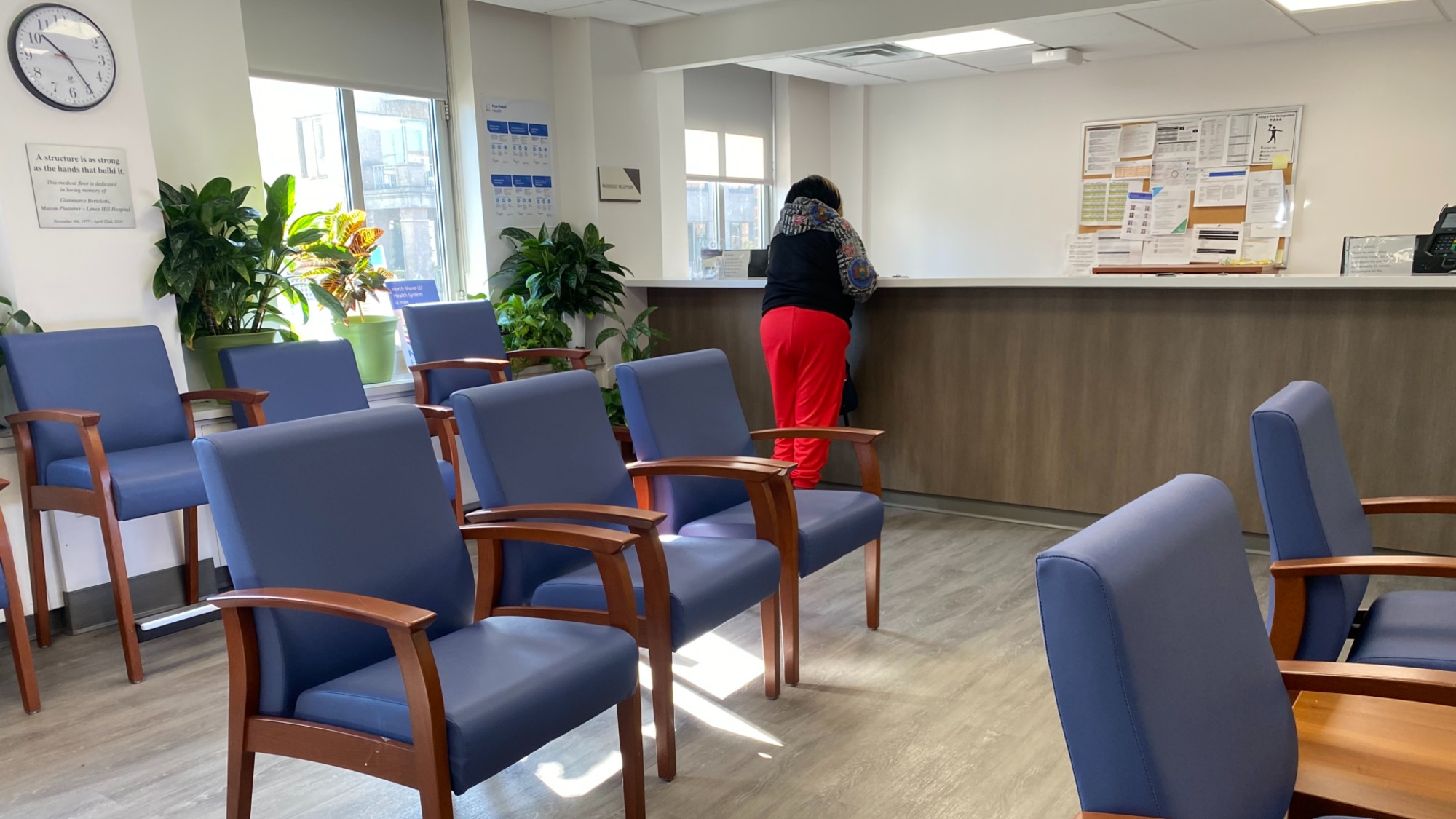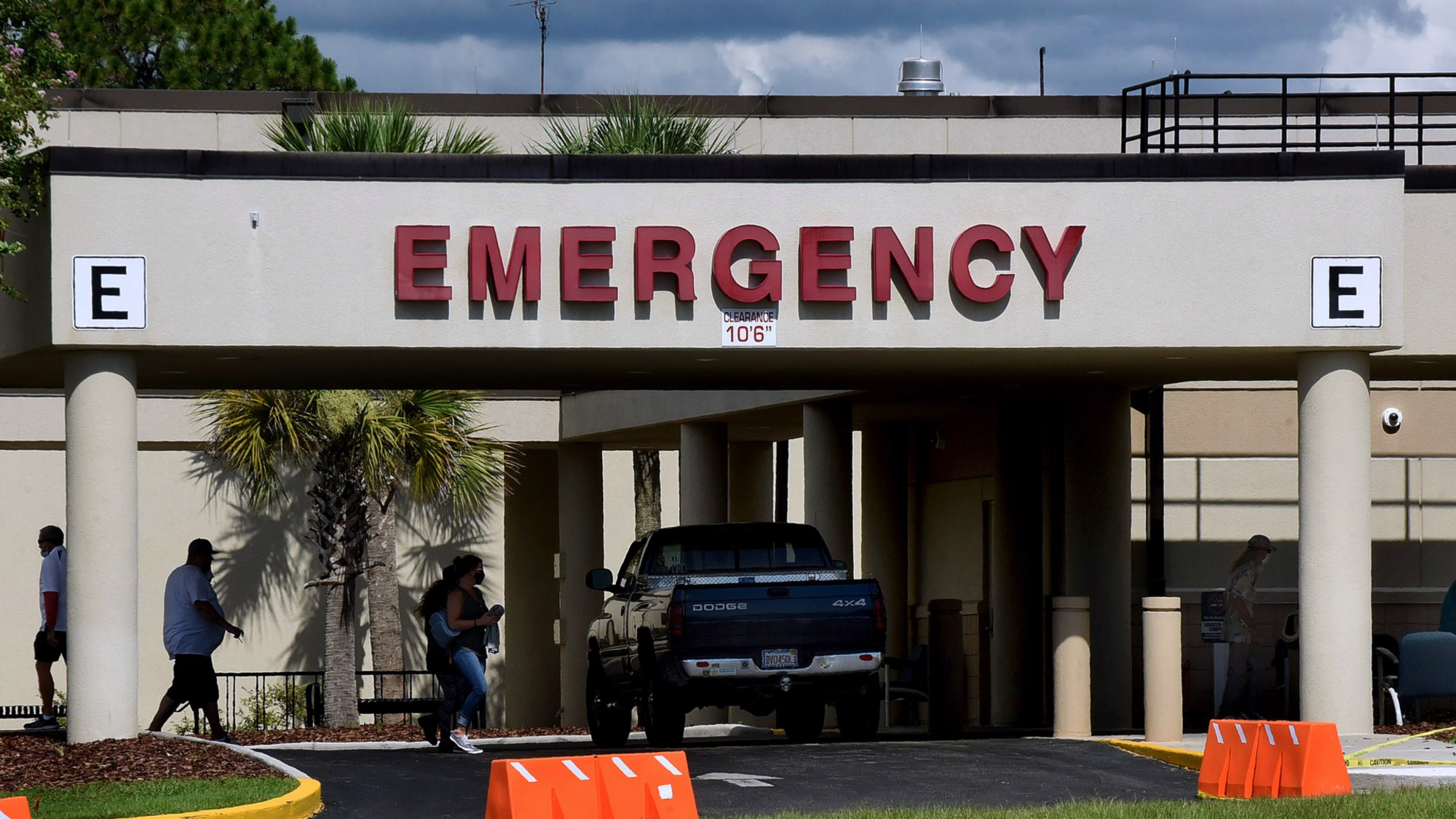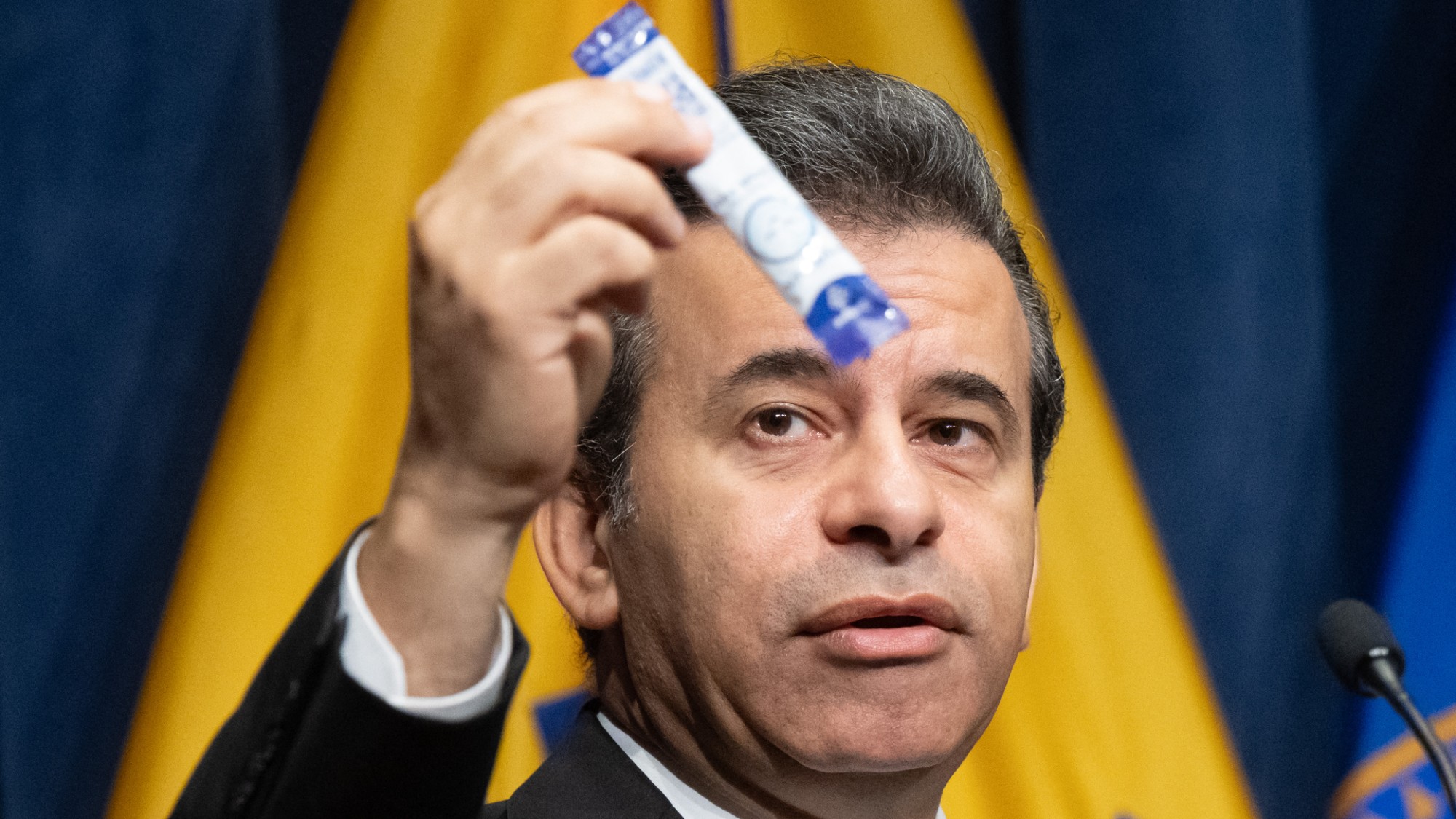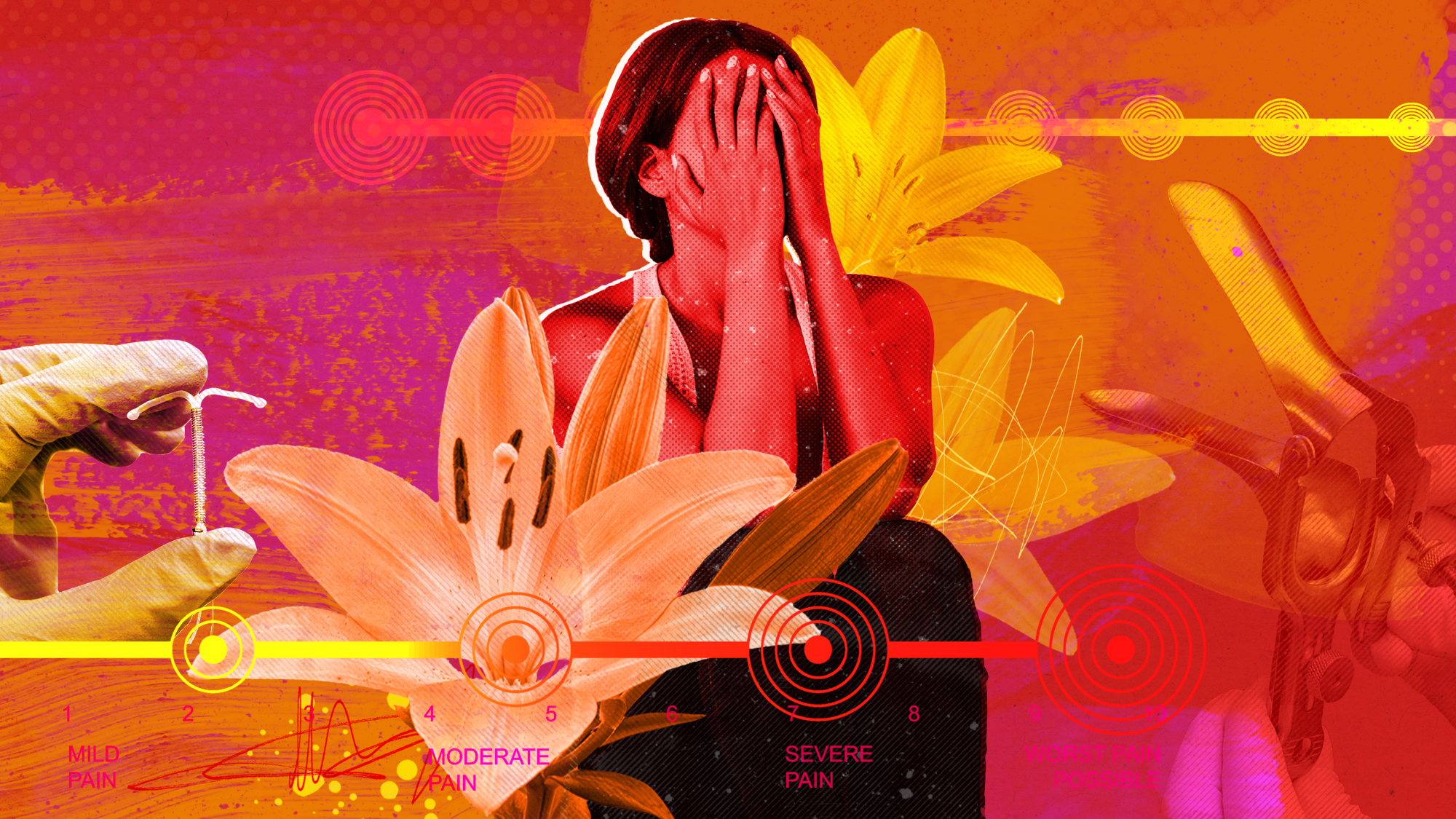Black mothers at risk: inside the maternal mortality crisis
Childbirth can be deadly


A free daily email with the biggest news stories of the day – and the best features from TheWeek.com
You are now subscribed
Your newsletter sign-up was successful
When it comes to childbirth, the United States stands out for having the highest rate of maternal mortality (the number of maternal deaths per 100,000 live births) of any high-income country. One group within that crisis has borne the brunt of the worsening maternal mortality rate: Black women.
The current state of Black maternal mortality
The World Health Organization defined a maternal death as "the death of a woman while pregnant or within 42 days of termination of pregnancy, irrespective of the duration and the site of the pregnancy, from any cause related to or aggravated by the pregnancy or its management, but not from accidental or incidental causes."
Every year in the U.S., hundreds of people die during pregnancy or in the year after, and thousands more "have unexpected outcomes of labor and delivery with serious short- or long-term health consequences," per the Centers for Disease Control and Prevention. All deaths related to pregnancy are tragic, "especially because more than 80% of pregnancy-related deaths in the U.S. are preventable," the CDC noted. In 2021, Black women were nearly three times more likely to die from a pregnancy-related cause than white women, according to data from the National Vital Statistics System. The maternal mortality rate for Black women was 69.9 deaths per 100,000 live births, which is 2.6 times the rate for their white counterparts.
The Week
Escape your echo chamber. Get the facts behind the news, plus analysis from multiple perspectives.

Sign up for The Week's Free Newsletters
From our morning news briefing to a weekly Good News Newsletter, get the best of The Week delivered directly to your inbox.
From our morning news briefing to a weekly Good News Newsletter, get the best of The Week delivered directly to your inbox.
New York City is a dark representation of this phenomenon. Black women there are nine times more likely to die from pregnancy or childbirth than white women, "a far starker disparity than the national one," The New York Times pointed out. The city's "disturbing record" has drawn the attention of "lawmakers, health authorities, activists and even filmmakers." That attention has resulted in new legislation and programs, including increased funding for doulas, a state board examining each maternal death and surveys for new mothers about their childbirth, "with questions about racism" included, the Times added. It remains to be seen "whether the attention or interventions will have much effect," but "by some indicators, maternal health in New York is worsening," the outlet wrote.
The root of the problem
Multiple factors lead to these pronounced racial disparities, per the CDC, "such as variation in quality health care, underlying chronic conditions, structural racism and implicit bias." Many people from racial and ethnic minority groups face barriers to "fair opportunities for economic, physical and emotional health."
Last year, the United Nations published an analysis of Black women's experiences in the Americas that concluded that "systemic racism and sexism in medical systems" were the main reasons they were more likely to face severe complications or death in childbirth, not "genetics or lifestyle choices" as some have assumed, the New York Times explained. The report from the U.N.'s sexual and reproductive health agency, the United Nations Population Fund, surveyed data from several countries in the Americas, including the United States. Black women, the report found, were more likely than white women to report being denied medication or suffering physical or verbal abuse in health care settings.
Another recent study supplied further evidence to dispel the myth that economic circumstances are the only factor driving the racial disparity. Published last January by the National Bureau of Economic Research, the study includes almost all the infants born to first-time mothers from 2007 to 2016 in California, the state with the most annual births. The study is the first of its kind to show that the risks of childbirth carry across race and parental income level. It illuminated "how Black families, regardless of their socioeconomic status, are disproportionately affected," the Times reported.
A free daily email with the biggest news stories of the day – and the best features from TheWeek.com
The findings suggest that the "well-documented Black-white gap in infant and maternal health" can not solely be pinned on "differences in economic circumstances," said Maya Rossin-Slater, an economist studying health policy at Stanford and an author of the study, told the outlet. "It suggests it's much more structural."
Trying to find solutions
With increased attention to the issue, experts are creating solutions that target the systematic issues driving the disparity in maternal mortality. The U.S. government is attempting to do its part on a national scale. The CDC observes Black Maternal Health Week every year from April 11-17 to "bring attention and action in improving Black maternal health."
In 2021, the U.S. House of Representatives' Black Maternal Health Caucus presented an ambitious package effort, called The Black Maternal Health Momnibus Act, to confront the crisis at the federal level. The proposal includes 12 standalone bills that address the various socioeconomic factors that influence pregnancy and childbirth, "including investing in the social determinants of health, growing and diversifying the perinatal workforce, and improving data collection for maternal health," Johns Hopkins Bloomberg School of Public Health explained. So far, only one part of the Momnibus has been signed into law, the Protecting Moms Who Served Act.
"At the heart of these investments is the principle that in America, every family has the right to thrive, a principle that begins with a safe and healthy pregnancy and birth," said Illinois Representative Lauren Underwood, a lead sponsor of the Momnibus.
Medical schools must teach all students to care for a "racially diverse patient population," Dr. Uche Blackstock, author of "Legacy: A Black Physician Reckoning with Racism in Medicine," told ABC News. "We shouldn't just leave it up to Black physicians to do that." To ensure everyone receives equitable care, we must dissect what medical schools teach and hold health care institutions accountable for their curriculums. That means "keeping track of metrics, keeping track of patient feedback and intervening when needed," Blackstock added. And we should expect "our policymakers to look at policies that we invest in Black communities."
Theara Coleman has worked as a staff writer at The Week since September 2022. She frequently writes about technology, education, literature and general news. She was previously a contributing writer and assistant editor at Honeysuckle Magazine, where she covered racial politics and cannabis industry news.
-
 Switzerland could vote to cap its population
Switzerland could vote to cap its populationUnder the Radar Swiss People’s Party proposes referendum on radical anti-immigration measure to limit residents to 10 million
-
 Political cartoons for February 15
Political cartoons for February 15Cartoons Sunday's political cartoons include political ventriloquism, Europe in the middle, and more
-
 The broken water companies failing England and Wales
The broken water companies failing England and WalesExplainer With rising bills, deteriorating river health and a lack of investment, regulators face an uphill battle to stabilise the industry
-
 Deaths of children under 5 have gone up for the first time this century
Deaths of children under 5 have gone up for the first time this centuryUnder the radar Poor funding is the culprit
-
 Nursing is no longer considered a professional degree by the Department of Education
Nursing is no longer considered a professional degree by the Department of EducationThe Explainer An already strained industry is hit with another blow
-
 More adults are dying before the age of 65
More adults are dying before the age of 65Under the radar The phenomenon is more pronounced in Black and low-income populations
-
 Doctors sound the alarm about insurance company ‘downcoding’
Doctors sound the alarm about insurance company ‘downcoding’The Explainer ‘It’s blatantly disrespectful,’ one doctor said
-
 Private equity firms might be causing more deaths in hospital ERs
Private equity firms might be causing more deaths in hospital ERsThe Explainer Deaths in ERs purchased by private equity firms rose 13%
-
 Why the FDA wants to restrict kratom-related products
Why the FDA wants to restrict kratom-related productsIn the Spotlight The compound is currently sold across the United States
-
 A disproven medical theory could be guiding RFK Jr.'s health policy
A disproven medical theory could be guiding RFK Jr.'s health policyThe Explainer The miasma theory is one of the oldest medical beliefs in history
-
 Women need more pain management during gynecological procedures
Women need more pain management during gynecological proceduresUnder the radar Pain should no longer be ignored
